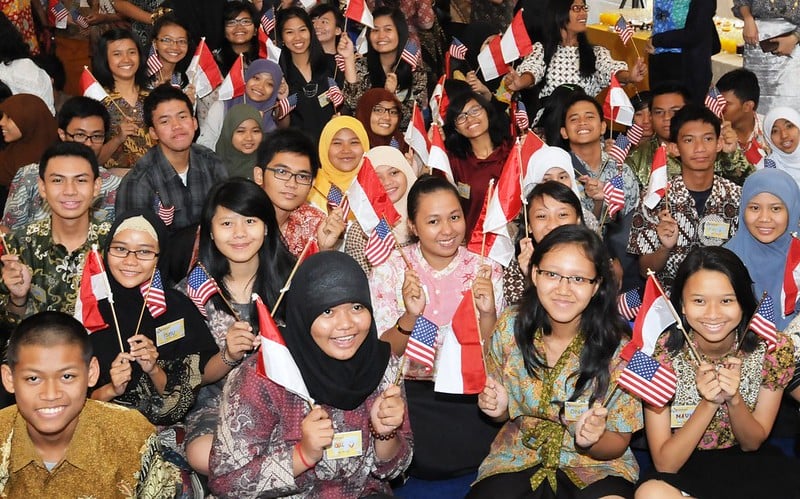This collaboration between Baylor University’s Institute for Studies of Religion, Harvard University’s Human Flourishing Program, Gallup, and the Center for Open Science surveyed some 200,000 people from 22 different countries, making this a truly monumental study, which will be repeated for five years.
The big finding is that those who attend religious services tend to flourish more than those who do not. “This result does not vary much from country to country,” says Marshal, “though the effect is strongest in the most secular, usually western, countries.” Marshal concludes, “this survey reinforces the conclusion that serious religion generally correlates with human wellbeing.”
That shouldn’t be too surprising, though it’s notable that the flourishing gap between the religious and the non-religious is highest in secularist countries. Apparently, not only does religion result in greater flourishing, secularism results in less flourishing.
But then come the surprises. Marshal cites “the striking result that WEIRD (Western, Educated, Industrial, Rich, Democratic) countries do not score highest in human flourishing, in fact often the opposite.” In fact, the poor seem to be more flourishing than the rich. “Strikingly, in general, meaning in life and composite flourishing is negatively correlated with GDP per capita. Money is not making people flourish more.”
To me, the greatest surprises are in the countries whose people seem to be flourishing the most. Here are the top five countries with the highest flourishing scores. The first list is a tabulation without financial indicators factored in:
(1) Indonesia
(2) Mexico
(3) Philippines
(4) Israel
(5) Nigeria
This list includes the financial indicators:
(1) Indonesia
(2) Israel
(3) Philippines
(4) Mexico
(5) Poland
The United States comes in at #15 without the financial indicators and #12 when those are included.
First of all, Indonesia is the most flourishing country by both measures? With nearly 285 million people, it’s the 4th most populous nation on earth, after India, China, and the United States. And it’s the world’s most populous Muslim-majority nation.
Marshal says that Indonesia has developed a system in which all religions can mostly get along. It has an official philosophy known as pancasila, meaning, “the five principles.” The first of which is “Belief in the one and only God.” This monotheism as a civil religion allows for both Islam and Christianity. Though 87% of the population is Muslim, Indonesia rejects the concept of an Islamic state. The 10% who are Christians (7% Protestant, 3% Catholic) include some 7.7 million Lutherans. The Protestant Christian Batak Church, with 6,333,000 members is the fourth largest Lutheran denomination in the world, and the largest Protestant denomination in Indonesia. There are twelve other Lutheran denominations, some of which work with missionaries from the Lutheran Church Missouri Synod and at least one is in fellowship with the Wisconsin Evangelical Synod.
Marshal credits Indonesia’s high sense of flourishing with Indonesians’ ability to keep their close tribal and traditional ties, even in the big cities. Indonesia has a democratically-elected government, with a President, legislature, and judiciary. Though plagued sometimes with separatist movements and accusations of human rights violations, the Indonesian system seems to work well.
But #2, money not considered, is Mexico? With all of its murderous drug cartels?
#2, money included, is Israel? With the Hamas war and constant threat of terrorism?
#3 on both lists is the Philippines. Not surprising, perhaps, given its strong social values.
#5 without financial factors, is Nigeria? The nation, nearly equally divided between Christians and Muslims, described as “one of the world’s deadliest places to follow Christ,” in which last year 4,000 Christians were killed because of their faith?
# 5 with financial factors is Poland. I can understand that, with the strongly Catholic country repudiating its former Communist masters with a strong free-market economy.
Why aren’t affluent Western countries flourishing? What do these poor countries have that we WEIRD (Western, Educated, Industrial, Rich, Democratic) countries do not?
And why are the people in countries with horrific problems nevertheless considering themselves flourishing?
Of the five top countries with financial factors included, one is Islamic, one is Jewish, and the other three are Catholic. Why aren’t Protestant countries showing up higher on this list?
Photo: Indonesian Exchange Students by U.S. Embassy, Jakarta via Flickr, Public Domain.














